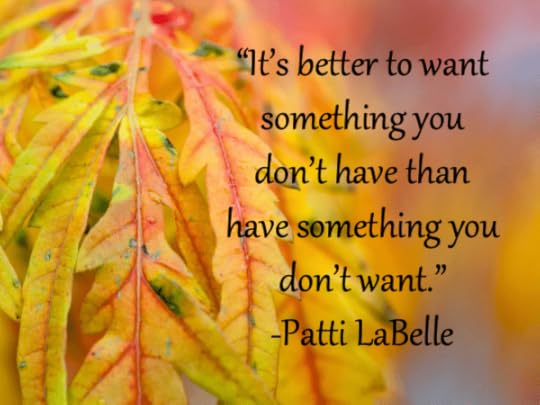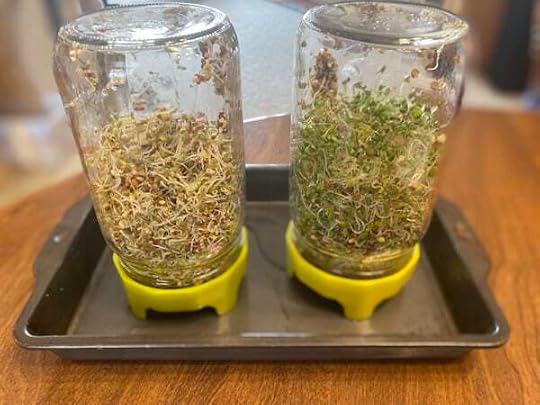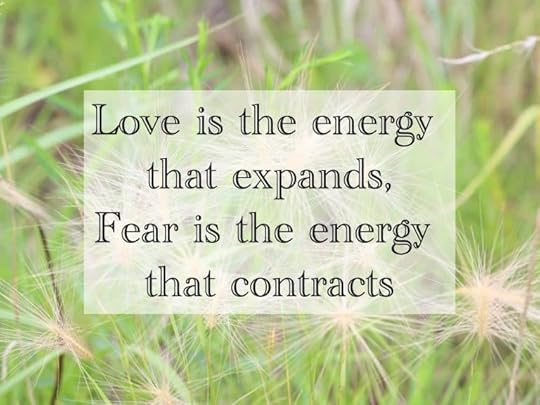Tina Hallis's Blog, page 4
January 7, 2023
I Couldn’t Help But Laugh – But I Didn’t Know the Hurt I Caused

I couldn’t help but overhear as my friend edited the video they had just recorded for their business. I laughed out loud as I heard them redoing their introduction on the recording for the fourth time. What I didn’t know was that my laugh had triggered their core wound.
A little while later, they shared that they would have laughed, too, but my reaction made them feel like giving up. Making this video was hard for them, and my laugh depleted the little self-confidence they had left. I quickly apologized and said I was impressed that they were pushing through despite the challenges.
Before I learned about core wounds and before I started my journey in positive psychology, my response would have been different. I probably would have thought their sensitivity to my laugh was ridiculous. I wonder if I would have apologized, and I doubt I would have had much empathy.
But now I’m realizing that we all have core wounds that make us feel overly hurt or upset by seemingly little comments or challenges.
Core wounds are often due to an emotionally significant event in childhood. As little children, we are trusting and defenseless. We take people’s words and comments as truths, not as human reactions to their own emotions and imperfections. We can experience deep hurts that stay with us into adulthood. These often turn into one of the common saboteurs as described in Positive Intelligence.
We may not even be aware these core wounds exist. Or if we have significant self-awareness, we may wonder about feeling unusually strong emotions to simple comments or experiences. “Why did their words make me so upset?”
We seldom know other people’s core wounds and they may not even share how much our off-hand comment hurts them. But I’m trying to remember that we all have past hurts and tender spots that are easily triggered. So when someone has an unusually strong reaction or seems upset, I try to pause, notice my internal reaction, and choose to stay calm. It’s going to take some practice, but when I choose empathy, life is so much better!
January 1, 2023
How often Do You Experience Enthusiasm?

If your email inbox is like mine, it’s stuffed with great advice about New Year’s resolutions. So I want to take a different approach. Instead of a resolution, I want to set an area of focus for this year. I want to spend more time following my enthusiasm and to encourage those around me to do the same.
The word “enthusiasm” comes from the Greek word “entheos” which means “the God within.” Depending on your belief system, this could mean God, the Divine, Source, Nature, or whatever resonates with you. To me, it means that when I’m feeling enthusiasm, I’m connected to my greater purpose, of why I’m on this earth.
How often do we ignore this feeling or maybe even feel guilty for having it? How often do we find ourselves in situations, projects, even jobs that create little or no enthusiasm for us?
My daughter has been filling out college applications, and a common essay question they ask is “What energizes you? What are your passions, obsessions, quirks, or inspirations?” It’s been fun to brainstorm with her and explore her interests. I think of how fully answering this requires deep self-awareness. And the quality of our life and our happiness is greatly impacted by knowing the answer so we can make sure we’re experiencing abundant amounts of enthusiasm in our life. It’s not just a question for colleges.
Here are some questions to help you reflect on what enthuses you.
What do you look forward to?What tabs are commonly open in your computer’s browser?What newsletters/emails/articles do you read first?What topics/activities make you lose track of time?What gets you the most excited, angry, or emotional?In 2023, I want to pay more attention to these questions, and as I identify those areas, I want to spend more time including them in my day. This also means excluding and saying “no” to those things that drain my enthusiasm. I also want to encourage and support my husband, daughter, friends, family, and YOU to do the same. I believe the world would be a better, happier place if we could all enjoy more enthusiasm!!
December 26, 2022
No Electricity, Phone or Internet Service?

You may not have noticed, but I didn’t send out a weekly tip on December 19th. Here in Wisconsin, we had a thick layer of heavy snowfall a few days before. The landscape was beautiful with the trees covered in white frosting! But it wasn’t so nice to lose our electricity, phone, and internet services. Granted, I shouldn’t complain. We stayed warm with our wood-burning stove, and we had a generator we ran a few times so we could get water and cook. And it was only about 10 hours later that our electricity and phone were restored. But not the internet. And we live out in the Baraboo bluffs where we don’t get a cell signal.
To make a long story short, it took 9 days before we had internet again. They had to ship us a new modem, and with the holidays, it took a long time to get here. Those were a very loooong 9 days!! Suddenly I realized how much our lives revolve around using the internet. I can’t begin to count the number of times I thought, “I’ll just look that up quick.” only to realize I couldn’t Google anything. No YouTube videos for my husband to watch. No TikTok to entertain my 17-year-old daughter. No communication with friends and family via texting or Facebook.
Instead of streaming Netflix, we had to dig out some old DVDs and hook up a player to the TV. Instead of Pandora for my Christmas tunes, I discovered some CDs I hadn’t played in years. That was an unexpected gift. My husband and I even played a couple of games together. That was another gift.
We did make a couple of runs into town to use the internet at the library and grocery store. What a great reminder of how convenient it is to have internet access at our fingertips at home!! And how interesting that so much of what we do now relies on it.
We were all incredibly happy to get our internet back, but there were several gifts in not having it for those 9 days.
Has life given you any unexpected gifts lately? Have you had any reminders of things you take for granted?
December 11, 2022
Are You More Like Chris or Terry?

Are you more like Chris or Terry?
Chris likes to stay up on the latest news, so they watch it on TV first thing in the morning and have the national and local news on during dinner. They also have an app on their phone that notifies them of the latest headlines. Their day is constantly filled with what the media deems as important or what will catch people’s attention.
Terry wants to stay informed but doesn’t like the constant bombardment of negativity. Terry chooses to check the headlines online a few times a week. They find that the news has become more like an editorial with opinions instead of relevant facts, so when they do check the news, they look at a few different sources from different perspectives.
Chris has the advantage of knowing more news and usually is informed before Terry. But the continual bad news creates an underlying worry that adds to Chris’ stress and anxiety. They don’t realize how much it impacts their mood and their overall wellbeing. And most of the stories are about things Chris can’t control or help.
Terry may miss important news events, but they prefer to spend their time learning about other topics that interest them, like gardening, woodworking, and regenerative farming. They also belong to a couple of social media groups where they share ideas and best practices. They also enjoy documentaries on wildlife and history.
Fast forward to the end of their lives. Chris was more informed but less happy. In fact, the added stress caused some serious health issues for Chris. Terry was less informed on events around the world and nation but spent more time in curiosity and enthusiasm.
Which one do you think had a more enjoyable life? Which one probably had more patience and compassion because they were less stressed?
We all have different interests and can handle different levels of stress, but I do think that it’s worth considering how much the news may be affecting our lives. Would changing your news habits impact your wellbeing?
November 26, 2022
Strategies to Let Your Best Self Shine Through

Think of a time when you felt good, happy, content, or enthusiastic. How did feeling this way impact your attitude, your interactions with others, and your mood?
Compare that to a time you felt discouraged, frustrated, sad, or angry. How did that feeling influence your words and actions? Which scenario brings out the best version of yourself?
Imagine a sunny day with a clear blue sky. This is like the situation when our best self comes shining through.
But most of us have a couple of clouds that get in the way. They block the sun and block our true essence. One cloud is our survival instinct, that part of ourselves that is on guard, looking for danger, wanting to protect us.
The other cloud represents our wounds, scars, and raw spots that, when touched, can trigger a strong defensive reaction.
I appreciate how Frederik Imbo ties in this idea in his TEDx talk, “How not to take things personally?” Here are two strategies he recommends.
Survival InstinctWhen our survival instinct is going strong and telling us that our partner doesn’t appreciate us or our coworkers don’t like us because they’re not including us in their weekend plans, Frederik suggests looking at the situation from the other person’s perspective and assuming good intentions. Maybe our partner doesn’t realize we would like more appreciation because their love language is quality time. Maybe our coworkers don’t include us because we turned down their last invitation, so they think we’re not interested in joining them.
Wounds and ScarsMaybe the other person’s words have irritated an old wound that we’re not even aware of. Maybe feeling under-appreciated or left out goes back to an early childhood memory of feeling hurt because someone made us feel like we didn’t matter. Maybe we were intentionally excluded by other kids we thought were our friends. Now we are extremely sensitive to anything that resembles those situations.
Frederik says this is a time to practice empathy for ourselves, and it’s a time to speak up and voice how we’re feeling. Letting other people know we would like more appreciation or that we would like to be included without blaming or getting upset can create a stronger connection.
See if you can practice these strategies this week and notice if they help you spend more time as your best self.
November 20, 2022
Ideas to Make Gratitude Easier

I used to have a nightly habit of reflecting on things in my life I was grateful for before falling asleep. I’ve realized that somehow I’ve let that practice slip. How about you? Do you have a regular time or situation you choose gratitude? Or do you need to renew your efforts, like me?
With Thanksgiving right around the corner, I’m reminded to renew my practice. I’m also reminded of some valuable things I’ve learned that make gratitude easier and more impactful. Here are a few of my favorites.
Make it a game. Look for unexpected or very ordinary things to be grateful for. Maybe it’s a beautiful sunset as you’re driving home. With the cold weather hitting Wisconsin, I’m especially grateful for indoor plumbing! I’m grateful for a big box of fresh produce I received from a new place I’m trying called Farmer Jones Farm. They even included edible flowers!Think about new and long-time friends and family. I’m very grateful for three new ladies I’ve met through my patient advocate training with Dr. Nasha Winters. We shared an Airbnb at the Metabolic Health Summit in California this past spring. We had so much fun! We try to meet once a week to stay in touch. We share our struggles and our insights from learning to live a more metabolically healthy life and how we can help others.Think about a situation that felt difficult and unwanted in the moment, but now you see it as an important “push” or growth opportunity. I think back to when I was laid off from my biotech job 10 years ago this month!! Wow! There was a lot of fear and overwhelm, but the journey has been incredible! I’ve learned so much and met so many amazing people. I wouldn’t trade it for the world.Think about something from that past that you’re grateful you no longer have. Maybe it’s a past illness, pain, or challenging situation. I think about my struggle with hip and shoulder pain from an autoimmune issue I had a few years ago. It hurt to sit – whether it was in my care, at my desk, or at a table. It was hard to sleep. I’m so glad that I feel much better!This Thanksgiving, I’m incredibly grateful for my family, my home, my health, my business, and my friends. And I intend to reignite my nightly habit of thinking about the wide variety of things I’m grateful for in my life. How can you reinforce gratitude in your life?
November 13, 2022
Then I Heard a Loud CRUNCH! – Feeling bad doesn’t make it better

Do you ever get mad at yourself for making a mistake?
Here’s a mistake that I’m reminded of every time I look at my Sienna minivan…
A few years so, I was backing out of a parking spot in an indoor ramp when I heard my husband yell something from the passenger seat. Too late! A moment later, I heard a loud CRUNCH! #$!%!! I had caught the edge of one of the parking ramp pillars with the driver’s side door. Sure enough, there was a nice set of scratches and a dent in the door. Tina, you idiot! How could you be so stupid?!
After a minute or two of beating myself up and feeling awful, I gently reminded myself that accidents happen. Feeling bad wasn’t going to make it better.
Instead, I looked for possible lessons.
Self-forgiveness. Getting mad at myself won’t change what happened. I can beat myself up for hours or days, but it doesn’t accomplish anything except make me feel bad. Instead, it’s rich material to practice self-forgiveness and to give myself permission to be human.What would I do differently next time to avoid a similar mistake? Well, I would try not to park next to a cement pillar. And if I have no choice, I would be even more diligent in checking my mirrors.Keeps me humble. So the next time someone else makes a mistake, I can have a little more compassion and forgiveness for them. This is my favorite!What other lessons can you think of?
A few days later, my husband was backing out of our garage. When he came inside, he was mad. “I can’t believe I hit the mirror on the edge of the garage door! #$!%!!”
Hmmmm. What can I say to him? See #3 above. “I know how you feel!”
I hope you don’t make any mistakes this week. But if you do or if you catch someone else making one, give the lessons above a try.
November 7, 2022
Let Me Tell You About My Sprouts . . . even if you don’t care

The importance of this topic keeps showing up for me so I take that as a sign that I should reshare this post from a couple of years ago. Enjoy!
———–
Life is richer when we have interesting things to think about, talk about, and do. These are topics that we may find fascinating, want to learn more about, or just enjoy. For example, I like to experiment with new recipes, and new foods, like growing my own sprouts from seeds. I’ve also been playing around with different teas for making Kombucha. And I’ve been attending different virtual conferences related to nutrition, cancer, and disease. I’m never bored because I always have interesting things to think about.
I’m lucky. My family is supportive of my various jars and “potions” in the kitchen. And they listen when I excitedly talk about my latest insight from a health topic or my wonder at how quickly seeds sprout.
But what if they didn’t care? What if they rolled their eyes or ignored me? I know they’re NOT interested in sprouts, fermented drinks, and the latest research on health. Yet their willingness to “care” about my interests not only fuels my enthusiasm but also makes me feel loved. It strengthens our relationship and boosts my happiness.
Just like the importance of how we respond to other people’s good news matters, so does our response to their hobbies and interests. But let’s be honest. Sometimes it’s hard to take the time (and find the patience) to listen when it’s a topic that doesn’t matter to us. For example, my daughter’s love of fashion, Minecraft, and TikTok memes. Or my husband’s love of hunting, bushcraft, and tinkering with mechanical stuff.
As I’ve come to realize the immense importance of my response to them, I’ve discovered it’s easier when I celebrate their enthusiasm instead of focusing on the specific topic. I’m trying to get better at being happy because they’re happy, enthused because they’re enthused.
How about you? Do you show interest in other people’s interests? Or do you sometimes find yourself being impatient or dismissive? Try reminding yourself that your response matters.
October 30, 2022
When to Stop Thinking

My daughter was upset. A friend had said she was too busy with homework to get together, but then she posted a picture of her shopping with other friends. Why didn’t she just tell her the truth? My daughter wanted to write a text to send to her friend in the midst of her anger.
A friend of mine was feeling guilty and discouraged. She had been sick for a while and was unable to attend her son’s football games. She’d also been needing lots of rest and felt that she wasn’t able to be there for her kids. Right now, she needed to get some sleep, but her mind kept whirling, wondering what to do.
Have you ever been in a situation where you felt mad or hopeless and were pressuring yourself to solve the problem?
One of the most important pieces of advice I’ve ever received is to “stop thinking” when we’re upset, tired, or frustrated. Don’t try to figure things out. Don’t make decisions. Don’t take any actions we might regret.
Instead, give ourselves permission to not think about it until the next day, when we’re more rested and have a fresh perspective. I can remember my parents telling me when I was growing up that everything looks better the next day.
Now imagine how freeing that would feel! Instead of adding to your stress, you actually remove some of it. You can relax a little, knowing that you don’t need to deal with whatever it is until tomorrow, when you feel better.
Granted, this approach doesn’t work with everything or all the time. Sometimes you don’t have the luxury of waiting until the next day, and sometimes you don’t feel better. But I’ve found it is extremely helpful most of the time. Give it a try and let me know how it works for you.
October 16, 2022
What’s the Opposite of Love? It’s Not Hate

What is the opposite of love? I remember the first time I heard this question at a retreat. I thought the answer was obvious. Of course, it’s hate.
But the retreat leader said that hate was a common wrong answer. From ancient philosophers to modern-day neuroscience and psychology, the agreed-upon answer is fear. Hate is considered a downstream emotion.
At first, I had a hard time buying it. Fear? Really? But as we talked about more examples, it started to make sense.
We fear rejection, failure, looking stupid, being wrong, etc. We fear situations and people that might create these experiences. That fear shows up as frustration, stress, discouragement, insecurity, and so on.
But when we love a situation, a challenge, a person, or an opportunity, we feel optimism, gratitude, empathy, and curiosity.
Now I think of how this applies to Positive Intelligence and Shirzad Chamine’s description of our Saboteurs that operate out of fear versus our Sage that comes from a place of love. Our Saboteurs arise from our survival instinct, which is always on the lookout for threats and dangers. Sounds a lot like fear.
Our Sage is our true essence, our best self, that has compassion for ourselves and others. It has patience while also setting boundaries. It has discernment while also accepting others. It sees the gift when things go wrong.
So when we’re feeling stressed, upset, or down, we could ask ourselves what we’re afraid of. If we can identify the fear, it may help us resolve our feelings. If I’m feeling stressed because I feel like I have too much to do, I may discover that it’s a fear of letting people down, missing a deadline, or losing my job. Now I can explore these possibilities. What’s the worst that will happen? How likely is it to happen? What can I do to lower the risk or change the outcome? Is it having a conversation? Having a backup plan? Telling myself a different story?
Think of something that’s stressing you out or bringing you down. See if this approach can help.



